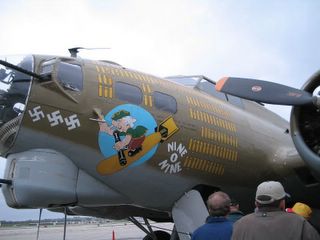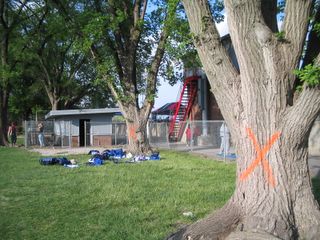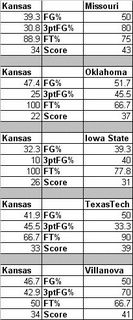Peter Jesperson is a life long music fan. He was the co-founder of Twin/Tone records back in 1977 and was responsible for bringing bands like The Replacements and Soul Asylum to national prominence. Today he is a Senior Vice President/A&R with New West Records in Los Angeles and still enthusiastic about music. It's an honor and a treat to post this Q & A with his responses:
FJ: I recently bought Loudon Wainwright's "Career Moves" CD online for four dollars and it's been worth every penny. Who is your favorite Wainwright these days and why?
PJ: well, I'll always love Loudon, through thick and thin. He's an amazing singer and guitarist though, admittedly, the great material has ebbed and flowed over the years. I love his cleverness and sense of humor. Just got the new one, haven’t listened to it enough to comment yet but sounds good. I like much of what Martha has done getting her own thing going. But, with all due respect to them both, Rufus would be my favorite Wainwright. On a purely vocal level, there aren't many in the business today that can touch him if you ask me. I find him to be an absolutely thrilling singer. And his musical vocabulary is staggering. Sometimes overly complicated but always challenging.
FJ: Did you ever visit Lawrence, KS in the early days and if so, do any memories stand out?
PJ: I sure did, several times. The most indelible memory is of Bob Stinson nearly being electrocuted. Blake Gumprecht, then from KJHK, had brought The Replacements down for their first show in Lawrence, in some kind of old airplane hangar-like building ("the Off the Wall Hall" maybe?). We were sound checking. I was standing at the soundboard. Bob had one hand on his guitar, touched a microphone and couldn't let go. He was writhing around uncontrollably, I was sure he was done for. Then Chris Mars jumped over his drum kit and kicked the mic stand loose from bob's grip. It was terrifying. I also remember hanging around KJHK, being allowed to play whatever records we felt like on the air, it was a gas. True college radio. The band were quite well known there very early on. With Blake leading the charge from the first album on, we'd send a new Replacements record down and it automatically entered the KJHK chart at #1.
FJ: Some of the most talented KJHK staffers found their way to Minneapolis in the 80s: People like Blake Gumprecht, Todd Newman and Lori Wray. In fact Medium Cool worked with Todd as part of the Leatherwoods. Were you aware of this Lawrence to Minneapolis pipeline?
PJ: Yes, I was very aware of the pipeline. Blake was our first actual employee at Twin/Tone. The Mortal Micronotz came up to Mpls and played, slept on my floor. Todd Newman was a huge inspiration, such a talented musician. The Leatherwoods were a dream come true for me - like a perfect combination of The Beatles and the Everly Bothers. They came along right after The Replacements disbanded in '91. Todd and co-singer Tim O'Reagan really had it going on. They had enormous potential that, sadly, was never realized. I never knew Lori Wray very well. The Embarrassment were from that general area too I think, right? I liked them too.
FJ: The Embarrassment – Yeah, one of my all-time favorite bands! Besides artists in the Twin/Tone catalog, who were some other personal favorites of that time?
PJ: R.E.M., Joy Division, The Soft Boys, The dBs.
FJ: What's the most important lesson you learned about running a record label during the Twin/Tone era?
PJ: #1, That it was really hard work. We had some brilliant artists but limited resources to promote them. #2, That whenever a group wasn't successful, the label got the blame, whether we deserved it or not.
FJ: You wore a number of hats while working with The Replacements: producer, manager, and promoter. How would you like to be remembered in reference to The Replacements?
PJ: I guess for having discovered them. I knew they were great before they realized it themselves. It was just so incredibly exciting to recognize something like that. I could hardly believe it myself at first.
FJ: In the days before the Internet, the scene was tied to geography and locations like Oar Folkjokeopus were important gathering places. Describe Oar Folkjokeopus to those of us who aren't familiar with it and why was it important to the Minneapolis scene?
PJ: Oar Folk was like a clubhouse for music nuts. I'd like to think it was important for several reasons: because we started carrying lots of 45s, imports and indie label stuff in '73, before it became widespread; because we embraced all kinds of music, from underground rock to pop to R&B to folk to German electronic and zillions of other things ... Hell, we sold tons of disco - great records by the likes of George Mccrae, Chic and Donna Summer; because all of us who worked there were serious students of music, lived and breathed it, were experts in our field and took great pride in it. We were fanatical. For instance, when the 2nd Mike Mcgear record ('Mcgear,' the stunning collaboration between Mike and his big brother, Paul Mccartney) came out in '74, we loved it so much that we covered an entire wall with display copies for weeks and kept it on the new release rack for a year. Sold nearly 500 copies of it - honestly, one of the accomplishments I'm most proud of in my life! Gotta put in a shout-out to the store's owner Vern Sanden, who is a record lover/collector himself, for allowing us inmates take over his asylum, so to speak.
FJ: Blake Gumprecht wrote an excellent history of the origin of Athens, Georgia in reference to the evolution of the alternative scene there. He profiled personalities that made it what it became. Tell me about one person you knew in the Twin Cities that was influential in making that music scene work, an unsung hero if you will.
PJ: If I had to talk about just one person, it'd be Andy Schwartz - a New Yorker who went to college in Wisconsin, gravitated to Minneapolis and lived there from '72 to '77. He is a walking encyclopedia of music and started writing about it for the Minnesota Daily (U of M newspaper). He was the first person that I remember who wrote a serious dissertation on the importance of the Suicide Commandos, the granddaddies of the whole late 70s/80s (and beyond) local scene. We hired him at oar folk in '75. He was a real catalyst for the musical community. He's back in N.Y. these days, working for the R&R hall of fame, opinionated as ever!
FJ: Have you ever been to Winfield, Kansas for the bluegrass festival? If so, give me your impressions.
PJ: No, I have not.
FJ: Speaking of festivals, I'm guessing you've been to SXSW a few times. How has that scene changed over the years and do you like it more or less than you used to?
PJ: I've gone every year since 1993. It's changed in sheer size and in the fact that a lot more people who are simply music fans attend. The traffic is overwhelming at times and it's harder to get into shows as so many of them "sell-out." you have to plan better than you used to, you have to have alternate options in case you can't get into the shows you most want to see. It's changed profoundly for me, personally, being a part of new west records who have such a large presence there every year. Usually 7 to 10 of our artists are appearing (some more than once) so it's more about new west work than scouting new bands. Not complaining though, it still seems like each year is the most fun I’ve ever had at SXSW!
FJ: Rapid advances in technology allow artists unprecedented opportunity to record and distribute their material. What's next and how will it effect what you do at your label?
PJ: Well, again, the traffic is intense. But, ultimately, there's more music now than ever before and that's a good thing. Not sure what's next but I do know that, as new west branches out into other areas of music, we're more affected by people burning our records and not paying for them which has an obvious affect. I'm all for sharing music but I simply believe an artist, like anyone else, should be paid for their work. I've primarily worked with left-of-center music all my life and those artists are already scraping to get by; it's tougher now than ever.
FJ: Are you a vinyl fan? Do you lament the fall of the vinyl record like I do? There's a certain tactile thrill you get when holding a full sized vinyl album that doesn't carry over to the CD or downloading an .Mp3, wouldn't you agree?
PJ: Yes, I'm a huge vinyl fan; still have thousands of albums and singles. But, yeah, I do lament it’s time having passed. But I also find it thrilling to hear about a new band and be able to type their name into a search engine, find their site and be listening to music in seconds. Like the other day, somebody told me a group called Nine Black Alps were cool and I was listening to a song by them in less than a minute. They sounded great by the way!
FJ: Excluding the job you hold now, what's been the best gig you've ever had?
PJ: I've loved just about all the "gigs" I've ever had. Haven't had that many actually. I've tended to have jobs that lasted a long time. But I suppose the 10 years running oar folk, from '73 to '83 was a highlight, I learned an incredible amount of things there. But Ii hafta say that working at New West is unquestionably my dream job. It took me almost 30 years to get into a position like this and I thank my lucky stars daily. Hourly sometimes. I work with a truly extraordinary team, from the staff to our stable of artists. In particular, Cameron Strang, who owns the label is one-in-a-million, an exceptionally gifted business person who loves music and has a heart the size of Nebraska.
FJ: I checked the
newwestrecords.com artist lineup and you've got some heavy hitters: Yoakam, McClinton, Hiatt et al. (Not to mention Old 97s and Drive by Truckers). In your opinion what do these artists share in common?
PJ: They're all extraordinary artists who are great, both on record and live.













